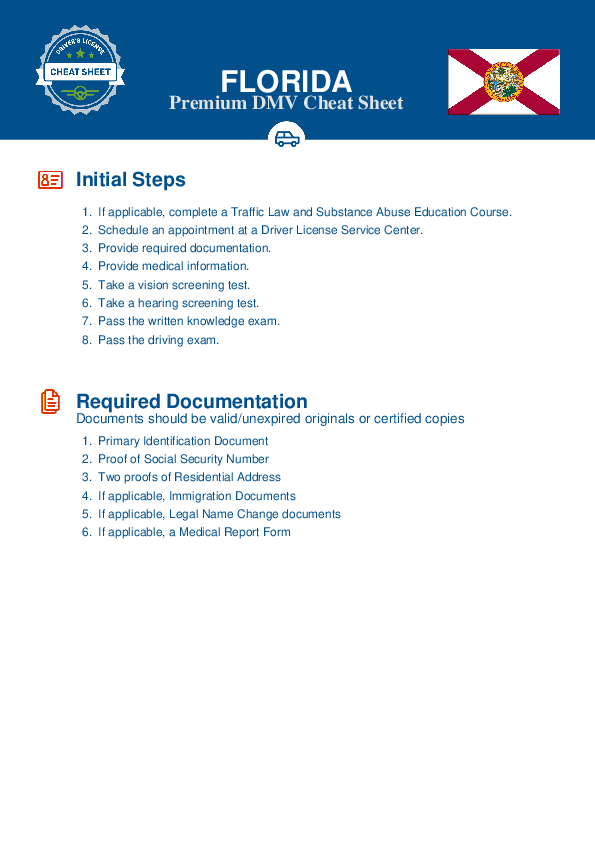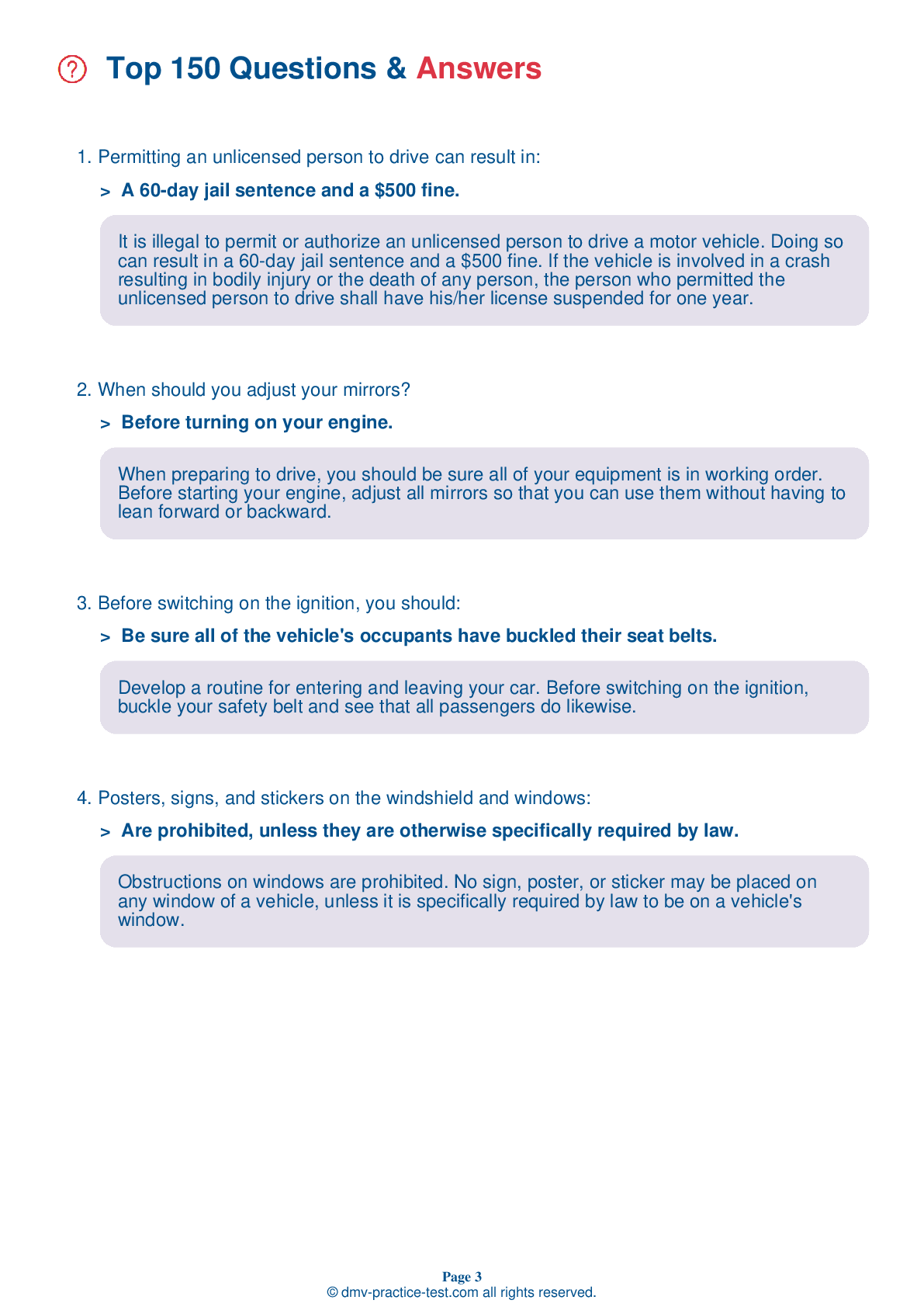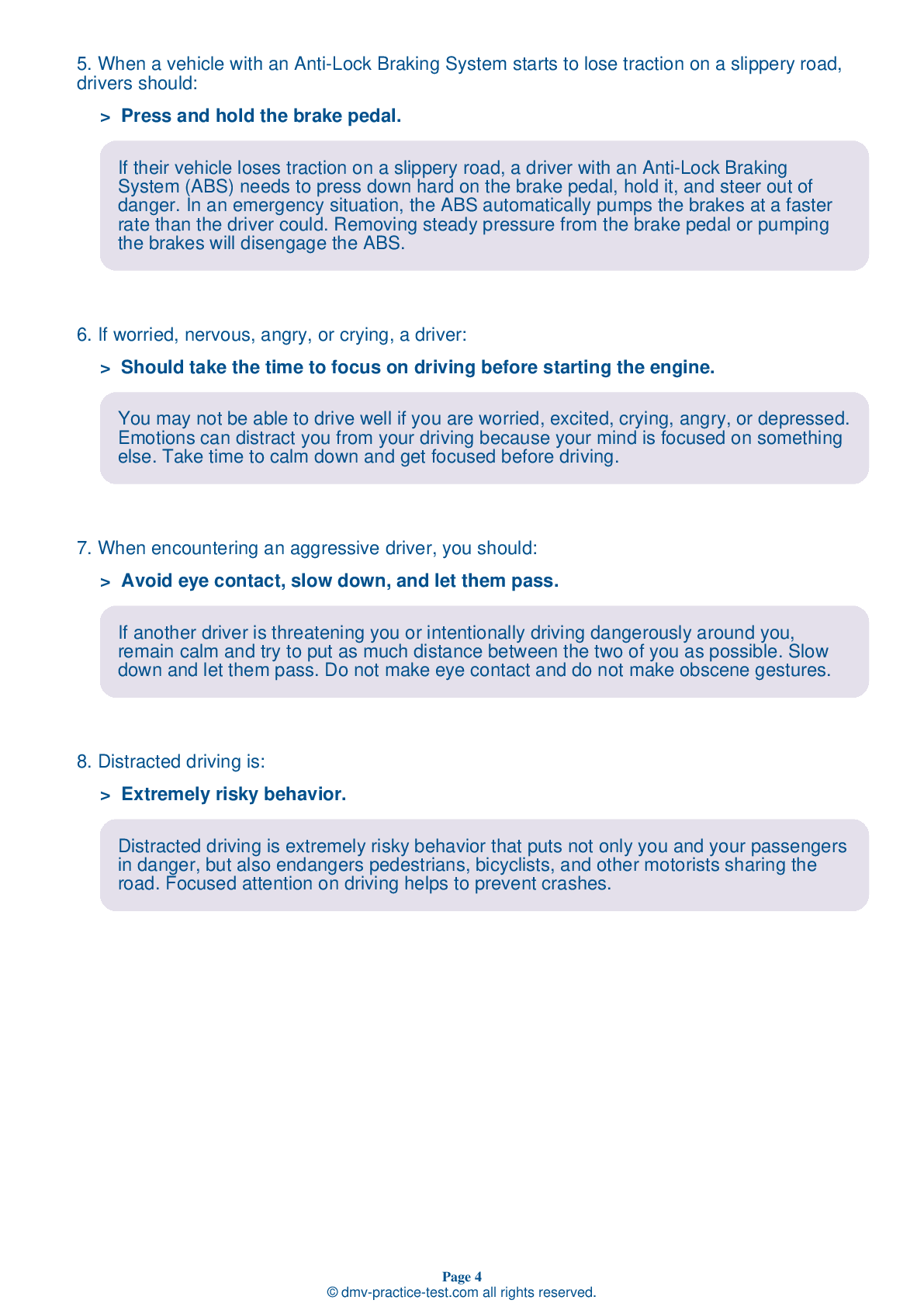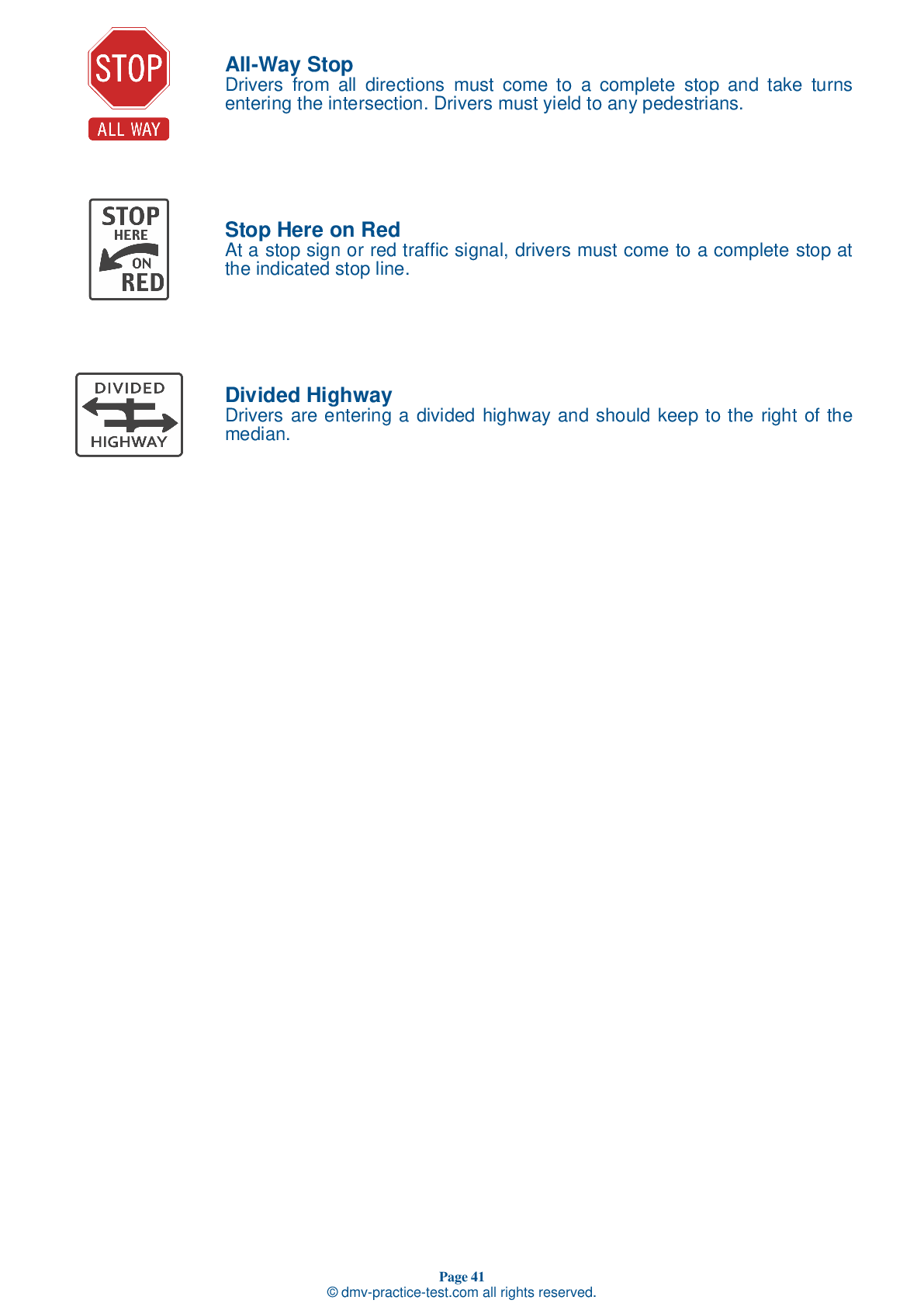FREE Florida DMV Practice Test #17
This set of DMV practise tests for the Florida has been updated for January 2025. It includes questions based on the most important traffic signs and laws for 2025 from the Florida Driver Handbook. To study for the DMV driving permit test and driver's licence exam, use actual questions that are very similar (often identical!) to the DMV driving permit test and driver's licence exam.
Each question on the practise exam has a tip and explanation to help you recall the ideas. Questions about traffic rules, traffic signs, and driving statutes, as well as information from the Driver Handbook, will be included in the written portion of the official DMV test.
You must properly answer 40 of the 50 questions to receive the required passing mark. To help you prepare for your Florida instruction permit or driver's licence, take our DMV practise test.
The DMV exam is offered in a variety of languages.
Using any kind of testing assistance will result in an automatic fail, and the DMV may take additional action against your driver's licence, so stay away from it.
1 . Motorcycles are entitled to:
Lane usage for the motorcyclist is critical. Motorcycles are entitled to the same full lane width as all other vehicles.
2 . If another car is in danger of hitting you, you should:
Your horn should be used to warn other drivers or pedestrians in situations where they may not see you. For example, if you think another driver is about to hit you, you should sound your horn.
3 . You must not drive your vehicle at a speed greater than:
You must not drive at a speed that is faster than is reasonable and prudent. You must drive at a speed that is appropriate for the area where you are driving, the type and condition of surrounding traffic, the presence of pedestrians, the weather, the quality of the road, and light conditions. You must drive within legal speed limits.
4 . Driving while being distracted by any activity:
Distractions cause drivers to react more slowly to traffic and hazards on the roadway. Distracted driving is never safe.
5 . When a drawbridge signal is red, you should:
If a drawbridge signal is red, come to a complete stop at the marked stop line. The bridge is in operation and the roadway is closed to all pedestrian and motor vehicle traffic.
6 . Crossbuck signs indicate:
Crossbuck signs tell drivers to yield to trains at a railroad crossing. Drivers should not try to outdrive a train.
7 . This sign means:

This sign indicates that hospital emergency services are located to the right.
See the exact questions that will be on the 2025 Florida DMV exam.
99.2% of people who use the cheat sheet pass the FIRST TIME
LT gives us an insight on how the cheat sheet provided her with all the study questions she needed before taking her test.
Joe initially studied with the handbook and failed his test, he eventually found us online, studied and pass his test the first time around.



